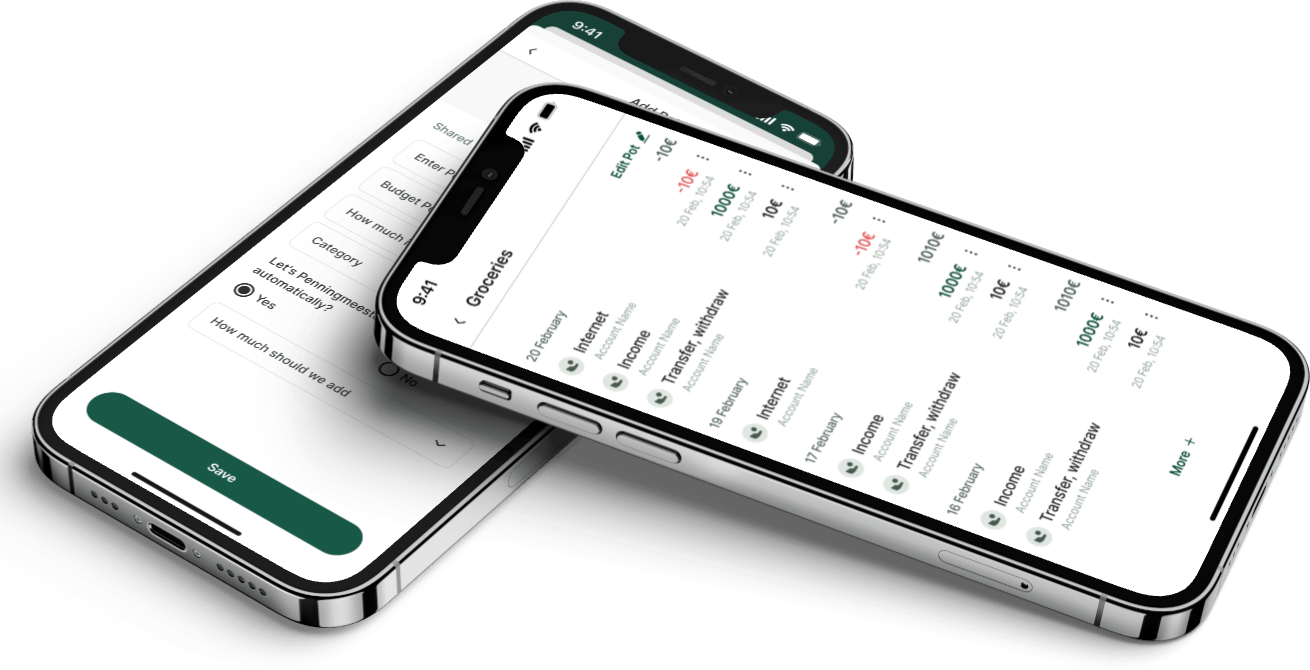Samen een budget maken is niet alleen wiskunde. Het gaat om vertrouwen, transparantie, en als het misgaat, spanning. In de meeste gezinnen is er één persoon die van spreadsheets en budgetten houdt (de Planner) en een ander die er liever op vertrouwt dat het allemaal wel goed komt (de Vermijder). Beide benaderingen werken, totdat het leven ingewikkeld wordt, rekeningen zich opstapelen, of iemand het gevoel heeft dat hij meer dan zijn deel draagt. Daar beginnen de meeste ruzies.
Maar wat als er een manier was om het giswerk weg te nemen over wie wat betaalt? Wat als er een gratis, eenvoudige tool was die ontworpen is om het delen van uitgaven zo duidelijk mogelijk te maken, zonder gedoe?
De échte reden waarom geldzaken zo vaak misgaan thuis
Laten we eerlijk zijn: rekeningen splitsen als koppel of gezin kan rommelig worden. De ene maanden hebben jullie geld genoeg, de volgende maand hebben jullie stress. De ene persoon doet boodschappen, de ander betaalt voor Netflix en huur. Voeg kinderen toe, een auto-afbetaling, een vakantiereis, en plotseling weet niemand meer of dingen “gelijk”, laat staan eerlijk verdeeld zijn.
Zonder een systeem stapelen kleine irritaties zich op. De Planner voelt zich misschien overweldigd door het bijhouden van elke transactie. De Vermijder voelt zich misschien schuldig (of heeft geen idee) over zijn aandeel. In het ergste geval krijg je passief-agressieve opmerkingen of een volledige ruzie over of iemand wel “zijn steentje bijdraagt.”
Daarom doen succesvolle koppels en gezinnen meer dan improviseren. Ze bespreken hoeveel elk van hen moet bijdragen aan hun gedeelde budget; wat telt als gedeelde uitgave en wat persoonlijk is, en houden dan hun gezamenlijke financiën samen bij. En zelfs als de een daar meer tijd in steekt, gebeurt het altijd op een transparante manier.
De oplossing: Eén eenvoudige gedeelde budgetplanner
Maak kennis met de Gedeelde Budgetcalculator, een gratis tool die je nu meteen kunt gebruiken, ontworpen om orde (en rust) te brengen in je geldgesprekken en huishoudbudget. Zo helpt het zowel Planners als Vermijders:
- Automatische Duidelijkheid: Iedereen kan in één oogopslag zien wat er wordt uitgegeven en waaraan.
- Eerlijkheid Ingebouwd: Geen gevoel meer dat je te veel betaalt, of niet genoeg. Met deze budgettool zie je precies wat je nodig hebt en kan je daarna een verdeling maken van wie wat bedrijgt op basis van jullie inkomen.
- Geen Ongemak: Geen behoefte aan gespannen gesprekken aan het einde van de maand. Afspraken zijn duidelijk, dus niemand hoeft te gissen.
Maar het belangrijkste is dat het je helpt de lijn te definiëren tussen gedeeld en persoonlijk geld. Hoe rekeningen te splitsen, de grootste bron van verwarring in relaties.
💰 Gedeelde budgetcalculator
Verdeel je maandelijkse uitgaven in categorieën.
Hier is een checklist voor het maken van je gedeelde budget
Wat hoort er in het gedeelde budget?
☐ Voer het gesprek: Voor het eerst samen aan het budgetteren? Het gaat niet alleen om geld. Het is een gesprek dat veel koppels liever vermijden, en om er het meeste uit te halen is het belangrijk om te bespreken hoe je partner echt over geld denkt.
☐ Stel Je Doel: Waarom budgetteren jullie samen? (Stress verminderen, sparen voor iets groots, etc.)
☐ Maak Een Lijst van Gedeelde Uitgaven: Huur, boodschappen, nutsvoorzieningen, vervoer, kinderen, abonnementen, spaardoelen, etc. Niet zeker over wat je momenteel aan dit alles uitgeeft? Ga eerst door onze budgetcreatie checklist en tools.
☐ Kom Overeen Wat Niet Gedeeld Is: Elke persoon maakt een lijst van wat “persoonlijk” blijft (hobby’s, cadeaus, oude schulden, solo-abonnementen).
☐ Beslis Hoe Te Splitsen: 50/50, proportioneel, of een andere methode waar jullie beide mee akkoord gaan.
☐ Houd Het Allemaal Samen Bij: Gebruik een gedeelde tracker—laat niemand gissen!
☐ Plan Een Check-In: 10 minuten eens per week/maand. Zitten jullie op koers? Is het eerlijk?
☐ Update en Vier Successen: Het leven verandert—je budget ook. Vergeet niet het bereiken van financiële doelen te vieren!
Dit is wat je absoluut samen moet bijhouden:
Huisvestingskosten (huur/hypotheek, nutsvoorzieningen, verzekering)
Boodschappen en huishoudelijke benodigdheden
Vervoer (auto-afbetalingen, verzekering, openbaar vervoer)
Kinderopvang en onderwijskosten
Gezamenlijk entertainment en uit eten gaan
Gedeelde abonnementen (Netflix, Spotify-gezinsabonnementen)
Bijdragen aan noodfonds
Gezamenlijke spaardoelen (vakanties, aanbetaling huis)
Verzekeringskosten
Dit zijn de bouwstenen van je gedeelde leven. Ze houden het huishouden draaiende en de toekomst veilig.

“Een geweldig huwelijk is niet wanneer het ‘perfecte koppel’ samenkomt. Het is wanneer een imperfect koppel leert om samen met geld om te gaan.”
– Dave Meurer
Wat telt als “persoonlijk geld”?
Je individuele uitgaven zijn ook belangrijk. Dit is wat elke persoon moet dekken uit zijn eigen “leuk geld” of persoonlijke budget:
Individuele hobby’s en interesses
Persoonlijke kleding en verzorging (naast de basis)
Individuele abonnementen en apps
Cadeaus voor vrienden en familie (inclusief elkaar)
Persoonlijke schuldafbetalingen (studieleningen, creditcards van voor de relatie)
Individuele beleggingsrekeningen
Persoonlijk “leuk geld” voor schuldvrije uitgaven
Individuele professionele ontwikkeling
Dit gaat niet om muggenziften, het gaat erom dat iedereen zich vrij en gerespecteerd voelt, met controle over zijn eigen geld.
Niet zeker hoe je een plan moet maken voor je persoonlijke uitgaven?
Wil je je huishoudelijke bijdrage toevoegen aan je eigen budget? Bekijk onze Gratis Persoonlijke Maandelijkse Budgetcalculator





